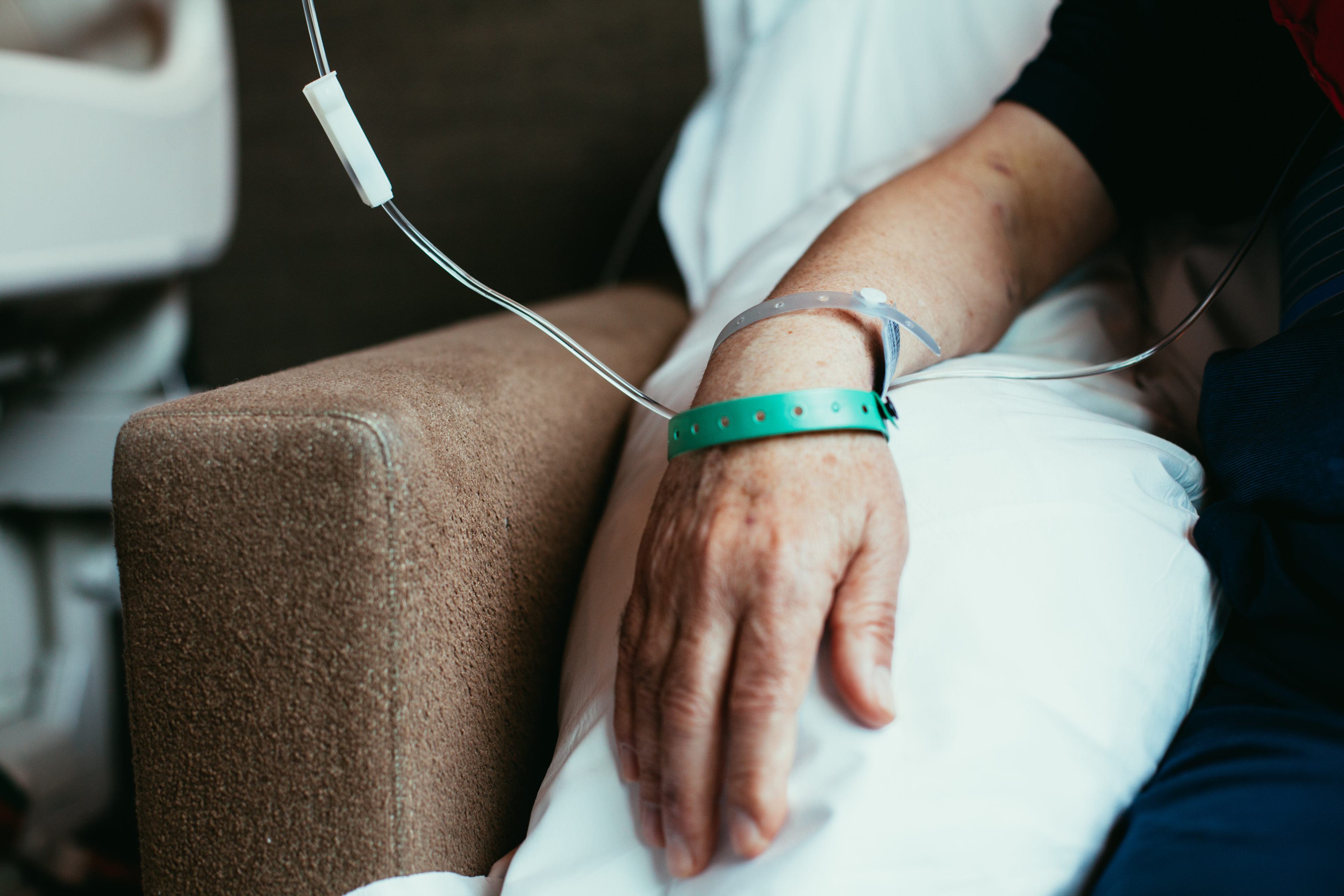Health Equity Reimagined
Solutions in Action: NEWS
Associate Professor Aims to Protect Health Care Workers from Harmful Drug Exposure
Each year, more than 8 million health care workers in the U.S. come into contact with antineoplastic drugs, such as chemotherapy, in shipping/receiving, transportation, compounding, administration, and less well considered sources like patients’ body fluids, including urine, feces, vomit and sweat. That exposure can cause a host of acute and chronic health problems for health care workers, including nausea, vomiting, hair loss, skin rashes, adverse reproductive outcomes, and increased risk for therapy associated cancers.

AnnMarie Walton, PhD, MPH, RN, OCN, CHES, FAAN, is hoping to change that and keep workers safe. An associate professor at the Duke University School of Nursing and member of the Duke Cancer Institute, she is actively researching how to understand and minimize health care workers’ exposure to these known carcinogens.
She is especially interested in understudied health care workers who lack standardized education and training about their exposures, such as nursing assistants, environmental services workers, and health unit coordinators.
“At the heart of who I care most about are workers that have less education and training than others and have less social capital and power within their work settings,” Walton said. “To me, understanding the needs of these groups of workers – the true frontlines during the COVID-19 pandemic – and the social contributors to their health that include things like social capital, social networks, organization of work, and workplace safety climate are really important.”
Walton was working on her dissertation, which focused on Latino migrant and seasonal farmworkers’ exposures to pesticides when she became more interested in this topic. She was also working clinically as a nurse in inpatient hematology/oncology and joined the Oncology Clinical Practice Group. Together, the group compared hospital’s policy to the National Institute for Occupational Safety and Health’s recommendations for safe handling of hazardous drugs and found places where changes needed to be made.
For instance, they found that her hospital needed to install signage for who was receiving the drugs, as well as provide educational materials for families, place receptacles for trace hazardous waste in patients’ rooms, and switch to only gloves tested for use with chemotherapy in the oncology units.
Surface Contamination Studies
Since coming to Duke, Walton has learned how to conduct surface contamination studies to look for traces of antineoplastic drug contamination on surfaces. In a study published in 2020 at the Duke University Medical Center, her team found that 61% of surfaces they tested on two inpatient units were contaminated with low levels of cyclophosphamide, a commonly administered antineoplastic drug.
Her team then went back and sampled those same 140 locations during COVID to see if the staff’s personal protective equipment (PPE) use had changed and, if so, whether that decreased surface contamination. The research showed that staff members were using PPE more often, especially when handling body fluids, but the contamination wasn’t significantly different overall, leading the team to conclude that PPE is necessary but insufficient to change environmental contamination.
The team also found that engineering controls like closed system transfer devices were not in use on the inpatient units at either time point, and they believe that would have done a lot to minimize surface contamination.
In both studies, Walton’s team found that the most contaminated places were toilets, which had the highest levels of antineoplastic drug residue. They then studied the efficacy of plastic-backed pads, which the Oncology Nursing Society recommends to minimize surface contamination and exposure from antineoplastic drug contaminated excreta, and found that there were not statistically significant differences overall between the two conditions. That may be because the experimental condition did not use the pads as consistently as they should have. Also in both studies her team found drug residue in rooms where the patient had not received that particular antineoplastic drug. The team was curious to know if it was a problem caused by inadequate cleaning.
“We had a secondary aim of looking at the efficacy of cleaning. We sampled toilets, walls and floors before and during chemo and after cleaning and found the after cleaning levels to not be zero, demonstrating that more concentration on cleaning practices is needed.”
AnnMarie Walton
PhD, MPH, RN, OCN, CHES, FAAN
“We had a secondary aim of looking at the efficacy of cleaning,” Walton said. “We sampled toilets, walls and floors before and during chemo and after cleaning and found the after cleaning levels to not be zero, demonstrating that more concentration on cleaning practices is needed.”
Walton shared her findings with Oncology Nursing News in May and June 2023, and her team is working on a funded pilot study that focuses on standardized education and training for understudied health care workers like nursing assistants, environmental services workers, and health unit coordinators. The team is also working on developing a novel, passive measure of exposure surveillance. Walton is also working with a University of North Carolina PhD student to examine the protective behaviors of environmental services workers.
“I love mentoring DNP (Doctor of Nursing Practice) and PhD students and am advising one DNP student doing safe handling of chemotherapy work in Tanzania right now and a PhD student looking at second victimhood among nurses during the COVID-19 pandemic,” she said. “I learn so much and they broaden the work that I am already doing.”
Besides her research, Walton also helps influence policy at the state and national level, as well as for national and international healthcare facilities and health groups.
“I have learned so much experientially through the process about how policy gets created and all of the steps involved, and it has really informed my teaching of health policy to nurses at DUSON,” she said.
AnnMarie Walton, PhD, MPH, RN, OCN, CHES, FAAN, is an associate professor at the Duke University School of Nursing. She is researching how to minimize health care workers’ exposure to known carcinogens.
